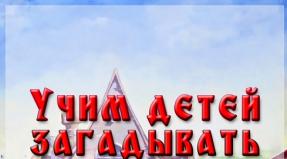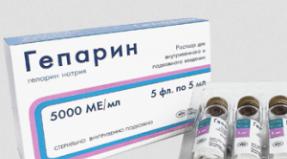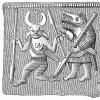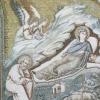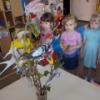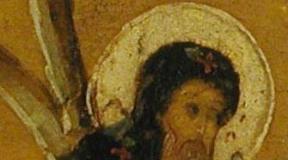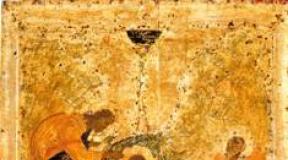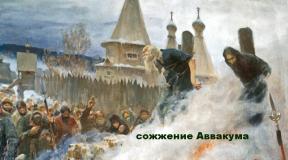Postgraduate medical education. Russian Medical Academy of Postgraduate Education Department of Postgraduate Training of Physicians
The Russian Medical Academy of Postgraduate Education (RMAPO) provides the following types of postgraduate education on a budgetary basis:
- improvement of practical health personnel (general and thematic);
- professional retraining of specialists (specialization);
- clinical residency training
- training of scientific and pedagogical personnel in graduate school
- preparation for passing the qualification exam for a specialist certificate;
- preparation in certification cycles for certification for the highest, first and second qualification categories;
- training in the form of on-the-job training;
- planned exit cycles - certification, general and thematic improvement.
Postgraduate training in cycles of improvement, professional retraining is carried out on a budgetary basis *:
- on applications / petitions / heads of bodies and institutions of health care of the Russian Federation and personal statements of citizens;
- for those working in medical institutions that do not belong to the system of the Ministry of Health of the Russian Federation, or in commercial structures - at the request of the heads of medical institutions / commercial structures / or at personal applications of citizens on a paid basis;
- for citizens of foreign countries - at the request of the heads of bodies / institutions / health care or personal statements of citizens of foreign countries
- on a paid basis.
HISTORY OF THE ACADEMY
The question of organizing an Institute for advanced training of doctors in Moscow was decided in 1928 by the Collegium of the People's Commissariat for Health. In the prepared project, the main tasks of the institute were formulated: improvement and specialization of doctors, training of scientific personnel, training of healthcare organizers and hospital administrators. The institute was planned to be the head one and was supposed to take over the leadership of the educational and methodological activities of all institutes for improvement and lead scientific work on the problems of improving medical personnel. The project was approved by the People's Commissariat of Health of the RSFSR and accepted for execution.
In accordance with the Decision of the Government of the Russian Federation, the Central Institute for Advanced Medical Studies was opened on December 1, 1930. The duties of the first director of the institute were entrusted to Professor Grigory Mikhailovich Danishevsky, who at that time worked as director of the Central Research Institute of Balneology and at the same time supervised medical education at the People's Commissariat for Health. The first organizational meeting of professors of the institute took place on December 20, 1930. Famous scientists, founders of future departments of the institute, took part in this meeting: Averbakh M.I. (Department of Eye Diseases), Kireev M.P. (Department of Infectious Diseases), Luria R.A. (first department of therapy), Margulis M.S. (Department of Nervous Diseases), Rozanov V.N. (Department of Surgery), Sysin A.N. (Department of Communal Hygiene), Talalaev V.T. (Department of Pathoanatomy).
On February 18, 1931, the People's Commissariat of Health approved the Charter of the Institute, which defined the Institute as the head institution in the state system of advanced training for doctors. The name of the institute was fixed - the Central Institute for the Improvement and Specialization of Physicians and Healthcare Organizers. From the first days of the organization of the institute, work was carried out to form departments, create a material and technical base, plan and organize educational and scientific work. During the first year of work at the institute, 25 departments were created, including: two departments of internal diseases, surgery, pathological anatomy, nervous diseases, bacteriology and epidemiology, otorhinolaryngology, balneology and balneology, tuberculosis, operative surgery and topanatomy, skin and venereal diseases, general and special sanitation, the organization of Soviet health care, eye diseases, orthopedics and traumatology, occupational pathology, urology, psychoprophylaxis and psychiatry, dentistry and odontology, physical education, emergency surgery, dialectical materialism, bacteriology, industrial hygiene, military sanitation.
The following were identified as the main clinical bases of the institute: Moscow City Clinical Hospital named after V.I. SP Botkin, Central Hospital of the People's Commissariat of Railways, Central Tuberculosis Institute of the USSR Academy of Medical Sciences, Moscow Regional Tuberculosis Institute, Central Institute of Balneology, Clinic of Medical Nutrition of the State Institute of Nutrition, Institute of Emergency Medicine named after V.I. Sklifosovsky Research Institute of Oncology, Institute of General and Communal Hygiene, Institute of Epidemiology and Microbiology and a number of other scientific and medical institutions. The CIU also transferred most of the various advanced training courses for doctors conducted by various research institutes and large medical institutions in Moscow.
In 1932, the following departments were opened: Infectious Diseases, Pediatrics, Physiotherapy, Obstetrics and Gynecology, Health Centers, Social Insurance, Food Sanitation and Hygiene, Radiology, Dietics, Maxillofacial Surgery, Dentistry, Early Childhood, Forensic Medicine. In 1935, there were 58 departments and independent associate professors in the CIU. In the first five years, 14,664 doctors and health care providers graduated; of these, 20% were trained in field training. In March 1936, methodological commissions for the surgical, therapeutic and sanitary-hygienic sectors were organized, which were later reorganized into departments, and then into dean's offices. The year 1936 is characterized by favorable shifts in all areas of the Institute's activities. This year, a new building on Begovaya Street was commissioned, premises on Barrikadnaya Street were received. And the building received on Sadovo-Kudrinskaya is currently our main administrative building.
Scientific research has received an important impetus. In May 1936, the first scientific and practical conference (on the problems of clinic and allergy) was held, which was held with great success. In the resolution of the conference, its participants appealed to the researchers and teachers of all GIDUVs with an appeal to actively carry out the training of scientific personnel. Since January 1938, CIU has been allowed to defend candidate dissertations at faculty councils. In 1939, a permanent commission was appointed to prepare for the publication of the first collection of scientific works of the CIU. The peripheral departments of the CIU were opened on the basis of scientific and large medical and preventive institutions of the country, a separate resort faculty was organized. The pre-war period is characterized by intensive work on the education and selection of personnel, strengthening labor discipline. In this direction, the peculiarities of that time are also significantly traced. In a relatively short period of time, five directors were replaced (Grossman Ya.L., Ginzburg B.S., Belenkiy S.Yu., Metallikov M.S., Shumarov S.Ya.) until Vera Pavlovna Lebedeva, who worked in this positions over 20 years.
In 1939, hostilities began on the Finnish front, which affected the themes of the cycles and, in general, the entire activity of the CIU - the heads of the departments carry out the important task of the Government to organize highly qualified assistance to the soldiers of the Red Army. Since 1941, the entire life of the institute was subordinated to the requirements of wartime. However, there was no complete curtailment of the activities of the CIU and no complete evacuation. The front and military hospitals were in dire need of graduates of the institute, and therefore already in 1942 the educational and scientific part of the institute and a number of departments of the surgical profile were restored, the work of the Academic Council was restored. For all the years of the Great Patriotic War, TsIU trained more than 25 thousand qualified medical specialists for the front and rear. With the end of the war, the institute began to solve peaceful problems; front-line departments were liquidated. Since 1947, systematic work began to improve the qualifications of foreign doctors.
The institute began its editorial and publishing activities; the library fund totaled more than 75 thousand titles of scientific and educational books; the 3rd scientific conference of the CIU staff was held; In 1955, the institute celebrated its 25th anniversary - during this time, more than 80 thousand doctors improved their qualifications at the CIU. In 1959, Maria Dmitrievna Kovrigia was appointed director of the CIU, who headed the institute for more than a quarter of a century. The Faculty of Medicine and Biology was organized as part of 14 departments and the Central Scientific Research Laboratory.
One of the most important directions - research work - scientific research on the problem - Scientific basis for the improvement of doctors. Soon, all educational departments of the institute joined these studies, and inter-institute and international cooperation began to develop successfully. At the beginning of the 60s, the institute became an authoritative institution for the training of scientific personnel for health care in many countries of Asia, Africa, and Latin America. Since 1963, the Moscow International Courses for Hospital Administrators of the WHO began to function on a regular basis. For over 25 years, the training of advanced training for doctors through an open television system has been practiced and brought the institute well-deserved fame.
In November 1967, the institute was awarded the highest award - the Order of Lenin, and in abbreviated form began to be called TSOLIUV. In 1980, for the success achieved in improving the qualifications of doctors and for international cooperation in postgraduate training of medical personnel, the institute was awarded the honorary badge "Golden Mercury". In 1985 Professor Kirill Pavlovich Kashkin was appointed rector of TSOLIUV. In 1988, Professor Viktor Vasilyevich Gavryushov was elected rector. Despite the difficulties of the transition period to 1990, TSOLIUV continued to be the most authoritative educational institution in the country in the field of postgraduate education of medical specialists. In 1994, on the basis of TSOLIUV, the Russian Medical Academy of Postgraduate Education, abbreviated as RMAPO, was created. In the same year, Professor Larisa Konstantinovna Moshetova, now an academician of the Russian Academy of Medical Sciences, was elected the rector of the academy.
RMAPO TODAY
Today the Academy is the largest educational, scientific and methodological center for postgraduate training of healthcare personnel in the Russian Federation.
The Academy has 7 faculties: surgical, therapeutic, pediatric, biomedical, preventive medicine, organizations of national and international health care, dental; 118 departments, a research center, a center for continuing education and certification of health personnel, a radiological clinic, an information-computing center, a fundamental library and other departments. The academy employs more than 2 thousand employees, including 25 academicians and corresponding members of the Russian Academy of Medical Sciences, 220 professors and doctors of sciences, more than 550 candidates of sciences. The Academy has successfully passed the next certification and was accredited. Postgraduate training is carried out - advanced training, professional retraining, training for doctors and paramedics in all medical and nursing specialties.
The academy also provides postgraduate education in all medical specialties. Training and advanced training of paramedical specialists (engineers, chemists, physicists, economists, etc.) is carried out. As the head institution, the Academy provides methodological assistance to all educational institutions of postgraduate medical education in the country. On the basis of the academy, the Central Attestation Commission of the Ministry of Health of the Russian Federation functions.
The annual graduation of health professionals steadily exceeds 25 thousand people, a significant part of whom are heads of health personnel and the teaching staff of medical universities and institutes for advanced training of doctors. The clinical base of the Academy includes 54 leading Moscow clinics and institutes, including: S.P. Botkin, children's hospitals - Tushinskaya and St. Vladimir, the Cardiological Research Center of the Russian Academy of Medical Sciences, the N.N. Blokhin Cancer Research Center, the Central Research Institute of Traumatology and Orthopedics named after N.N. NN Priorova, Scientific Center for Cardiovascular Surgery named after A.N. Bakuleva, Research Institute of Ambulance named after A.N. N.V. Sklifosovsky and other large institutions. The research activities of the Academy are still focused on the key problems of medical science. Particular attention is paid to the development of scientific foundations for the improvement of doctors.
Currently, RMAPO cooperates with the World Health Organization, the European Health Committee, the International Committee of the Red Cross, a number of international associations and companies, scientific organizations and educational institutions. The academy has 6 centers collaborating with WHO.
Institute of Professional Education, Federal State Autonomous Educational Institution of Higher Education First Moscow State Medical University. I. M. Sechenov of the Ministry of Health of Russia (Sechenov University) was established on December 1, 2013 on the basis of the decision of the Academic Council of the University (Protocol No. 8 of November 14, 2013) in order to organize activities for advanced training and professional retraining of medical personnel (order of the Rector of the University from December 4, 2013 No. 896 / P). It included: Directorate; departments (for the formation of personal files of students, certification; planning and holding competitions; innovative educational technologies); departments that implement programs of additional vocational education; Department of Postgraduate Studies; residency department.
The director of the Institute of Professional Education was appointed - Professor, Doctor of Medical Sciences.
Currently, the Institute for Professional Education includes: Directorate; departments (for the formation of personal files of students, certification; planning and holding competitions); departments that implement programs of additional vocational education.
The Institute of Professional Education trains specialists in almost all medical specialties. On its basis, more than 15 thousand workers of practical health care improve their qualifications annually. In addition to training students, the teaching staff trains specialists in residency, postgraduate and doctoral studies. Highly qualified specialists with an academic degree of candidate or doctor of medical sciences are involved in teaching. The training is carried out in more than 50 medical specialties.
The departments of the Institute of Vocational Education are located not only at the bases of the University Clinical Center, but also at the clinical bases of the leading research institutes, scientific centers of the Russian Academy of Sciences, large city clinical hospitals, polyclinics, maternity hospitals and dispensaries. This makes it possible for teachers, in addition to conducting theoretical classes, to demonstrate modern diagnostic and therapeutic techniques and to acquaint students with the latest achievements of medical science and practice.
Training of medical workers is carried out using simulators and simulators, which allows them to practice practical skills at a higher level.
The Institute of Vocational Education is actively involved in organizing and conducting training using distance educational technologies, as well as training using an educational certificate, online courses.
With their help, doctors from Astrakhan, Yaroslavl, Rostov, Tula, Lipetsk, Belgorod, Penza, Bryansk, Taimyr, Yakutsk, Ingushetia and a number of other cities of the Russian Federation are trained.
The Institute of Vocational Education is actively involved in pilot projects implemented by the Ministry of Health of the Russian Federation, the Department of Health of the city of Moscow:
A pilot project for the training of general practitioners for medical institutions in Moscow in the specialty "General practice (family medicine)"
The pilot project "On conferring the status of" Moscow doctor "in the specialties" General medical practice (family medicine) "," Psychiatry "," Radiology "," Gastroenterology "," Clinical pharmacology "," Forensic medical examination ", and from April 1 2019 - "Clinical laboratory diagnostics" on the basis of the Methodological Center for the Accreditation of Specialists.
The Institute of Professional Education organizes and constantly conducts a special exam for persons who have received medical and pharmaceutical training in foreign countries and claim the right to engage in medical and pharmaceutical activities in the Russian Federation, as well as an exam for admission to carry out medical and pharmaceutical activities in the positions of nursing and pharmaceutical personnel ...
Medicine is a rather complex professional activity. Specialists of this profile require not only a large amount of theoretical knowledge, but also a sufficient amount of practical skills. Although the level of medical education in our country is worse than in European countries, one cannot fail to note a trend towards an improvement in the level of quality of medical services. This is due not only to equipping clinics with modern equipment, but also to a significant increase in the level of professionalism of workers in this area.
Medicine can rightfully be called a fairly progressive field of scientific and entrepreneurial activity, which is why rather high requirements are imposed on workers in this area. Therefore, there is no reason to doubt that the constant improvement of the level of qualifications of doctors and other medical personnel is vital at the present stage of development of this industry.
ANO DPO "SNTA" offers citizens with secondary or higher medical education to undergo specialized training for retraining and advanced training. All materials used by our specialists in the educational process are selected taking into account the specifics of various areas of medicine. They are selected and grouped into modules based on federal standards.
Training courses for doctors at the SNTA training center
A professional and comprehensive approach to the educational process helped the staff of the Academy to form high-quality and useful training programs. After completing the course, the customer will receive skills and knowledge that will not be just theoretical baggage and will be forgotten immediately upon completion of training. Our materials are really useful in work.
During the training, each client is provided with theoretical information on the chosen topic, offered to perform various kinds of tasks. The training is carried out according to several programs. Each is characterized by its own nuances, which can be clarified with the curators of the Academy.
Professional development of medical workers
According to the requirements established by the norms of the legislation of the Russian Federation, personnel of the highest and middle category of medical institutions are obliged to improve their qualifications at least once every 5 years. This is a necessary condition for the implementation of further labor activity. Medical workers undergo certification cycles (minimum duration - 144 academic hours), as well as thematic refresher courses (16 academic hours and more).
Based on higher medical education
In ANO DPO "SNTA", advanced training of citizens with WMO is carried out according to one of the following scenarios:
- The certification cycle is 144 acad. hours. Upon completion, students are issued certificates and certificates. All documents comply with state standards
- Cycle of thematic improvement. Duration - from 16 academic. hours. As a result, appropriate certificates are issued.
On the basis of secondary medical (nurses and nurses) education
Improving the professional knowledge and skills of nurses is described in the Order of the Ministry of Health of the Russian Federation No. 83n dated February 10, 2016. According to this document, nurses are required to improve their qualifications once every 5 years. The fact of training must be documented.
For non-WMO workers, specialized training courses have been developed at the Academy. Upon completion, certificates and certificates are issued that meet all state standards.
Professional retraining of health workers
In accordance with legislative norms (in particular, the Law “On Education in Russia” No. 273-FZ dated January 29, 2012), medical personnel with a specialization obtained after completing an internship or residency are entitled to receive another specialization. This is done through the passage of professional retraining.
The basic requirements for these training programs are contained in the provisions of Law No. 273-FZ. According to the document, the minimum duration of the retraining course is 250 academic hours. or 3-4 calendar months.
Retraining on the basis of higher medical education
Retraining of citizens with higher medical education allows them to get a new specialization. The list of directions in which a doctor can undergo retraining is contained in the Order of the Ministry of Health of the Russian Federation No. 707. After completing the educational course of ANO DPO "SNTA", a state diploma is issued. We remind you that from 01.01.2019 the issuance of professional retraining certificates has been stopped. Instead, a doctor's accreditation certificate is issued. The document is issued after successfully passing the exam at the territorial subdivision of the Ministry of Health of the Russian Federation - the regional accreditation center.
Retraining on the basis of secondary medical education
Professional retraining of nurses and nurses also allows them to acquire a new specialty. The list of directions is listed in the Order of the Ministry of Health of the Russian Federation. For more information, please contact the staff of our Academy.
How is the training of health care workers going?
The main areas of study in our Academy are presented below:
- laboratory and clinical specialization;
- cosmetology, dietetics;
- dermatological activity;
- cardiology;
- healthcare management.
The number of directions is adjusted depending on market demand and the degree of training of the student. Separate blocks are formed for each direction in the curriculum. All training materials are posted on the official website of the organization. You can use them at any time of the day. Distance learning in our academy.
Assessment of the effectiveness of assimilation of materials is carried out by conducting final testing.
Completion papers are sent to the recipient by courier delivery, or by express mail. They are issued to the addressee against signature, so loss and errors are excluded.
Benefits of retraining and advanced training courses in health care at the SNTA Retraining Academy
- We strive to provide the customer with high-quality and relevant training material that meets modern state standards.
- The training schedule is very flexible. Each student can set the required number of study hours independently.
- You can get documents confirming the fact of successful completion of training anywhere in Russia - it will be delivered to any convenient place.
- All diplomas and certificates are produced in accordance with state requirements and are valid throughout the Russian Federation.
- Positive customer reviews prove every time that our courses are really effective. We implement a competent approach to work and actively use the latest teaching technologies.
Learning is like paddling against the tide:
as soon as you stop, it drives you back.
Chinese proverb.
Postgraduate training for doctors originated in the 30s of the XIX century, when the universities of Moscow, Kazan and Kiev began to practice training doctors in order to improve their qualifications, and internships for doctors in foreign clinics were also used. In 1885, the world's first clinical institute for advanced training of doctors was opened in St. Petersburg, now the St. Petersburg Medical Academy of Postgraduate Education.
Postgraduate medical education became a unified state system in our country in 1964. In 1965, all institutes for advanced training of doctors were transferred to the USSR Ministry of Health, and in 1968 an internship was introduced.
The search for the optimal model of medical training led at the end of the 90s of the XX century to the recognition of the need for continuous medical postgraduate education, which resulted in a paradigm shift from "education for life" to "education throughout life."
Postgraduate medical education can be divided into several types:
- Obtaining the main specialty (internship, clinical residency, postgraduate study).
- Professional development (improvement).
- Professional retraining.
- Self-education.
Getting the main specialty
Federal Law of August 22, 1996 No. 125 "On Higher and Postgraduate Professional Education" (with subsequent editions) stipulates that for persons who have completed their studies at a medical higher educational institution, the basis for occupying positions by them is a one-year postgraduate training (internship), confirmed by certificates the established sample.
Graduates who are admitted to clinical residency or graduate school do not take an internship. Moreover, not all specialties provide internship. For example, get the main specialty " Psychiatry»Can be done both through an internship and through training in clinical residency. But for the specialty " Psychiatry-addiction»Internship is not provided, only - clinical residency (see orders in the subsection" Admission to medical practice ", illustrating medical postgraduate education).
A complete list of specialties for which training is carried out through an internship is set out in the letter of the Ministry of Health and Social Development of the Russian Federation dated May 24, 2005 No. 2374-ВС "On the training of specialists in internship".
Training
Postgraduate medical education in the form of advanced training (improvement) is an update of theoretical and practical knowledge in an already acquired specialty.
Decree of the Government of the Russian Federation No. 610 of 06/26/95 "On Approval of the Model Regulations on an Educational Institution of Additional Education (Advanced Training) for Specialists" at least once every five years.
Postgraduate medical education at this level takes place in the form of cycles of general or thematic improvement and is confirmed by documents:
- certificate on advanced training - for doctors who have completed short-term training or participated in thematic and problem-based seminars on the program in the amount of 72 to 100 hours;
- testimony on advanced training - for students who have completed long-term training under the program in the amount of more than 100 hours.
Professional retraining
Professional retraining of specialists is another type of medical postgraduate education and is carried out on the basis of established qualification requirements for specific professions.
The standard term for professional retraining should be more than 500 hours. At the end of the training, a thesis is written and the state final exam is passed. In return, it is given professional retraining diploma, which certifies the right (qualifications) of a specialist to conduct professional activities in a particular area.
Self-education
Permanent self-education is a key aspect of postgraduate medical education. It is regular independent efforts (ideally, daily), and not going through improvement cycles every five years, that serve as a guarantee of professional competence.
Moreover, in some disciplines, such as internal medicine, it is impossible to provide quality medical care without being aware of the latest advances in medical knowledge.
Medical universities in Russia
The list of institutions that have faculties of advanced training and professional retraining is contained in the file of the Medical universities of Russia. Please note that some of the information cards include the current training cycle schedule.
The list of the required minimum of things and documents that will be required for training is set out in a separate file (check this list at the place of training).

